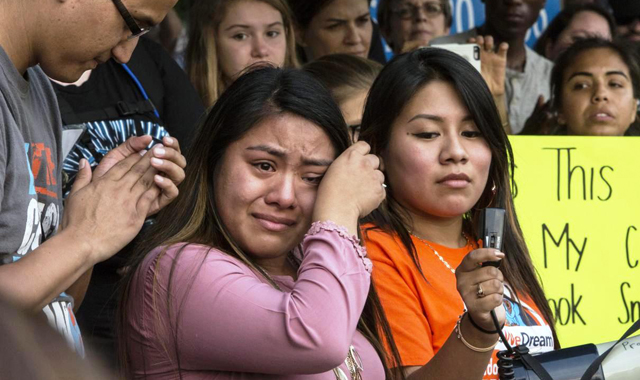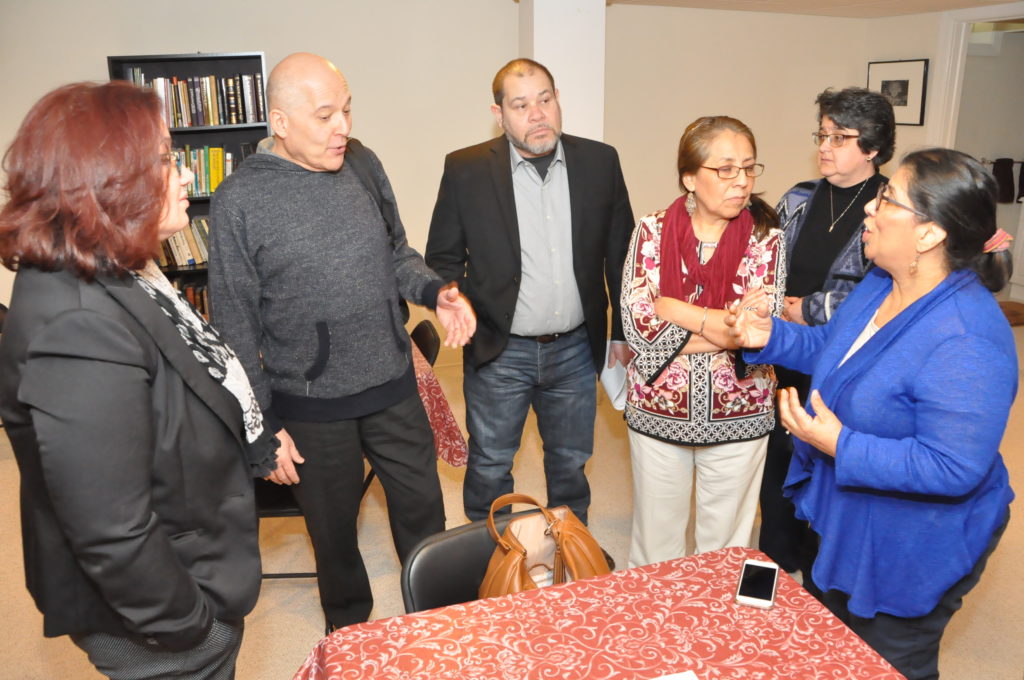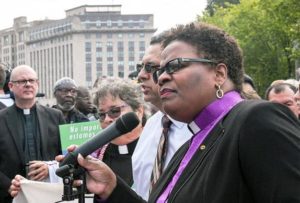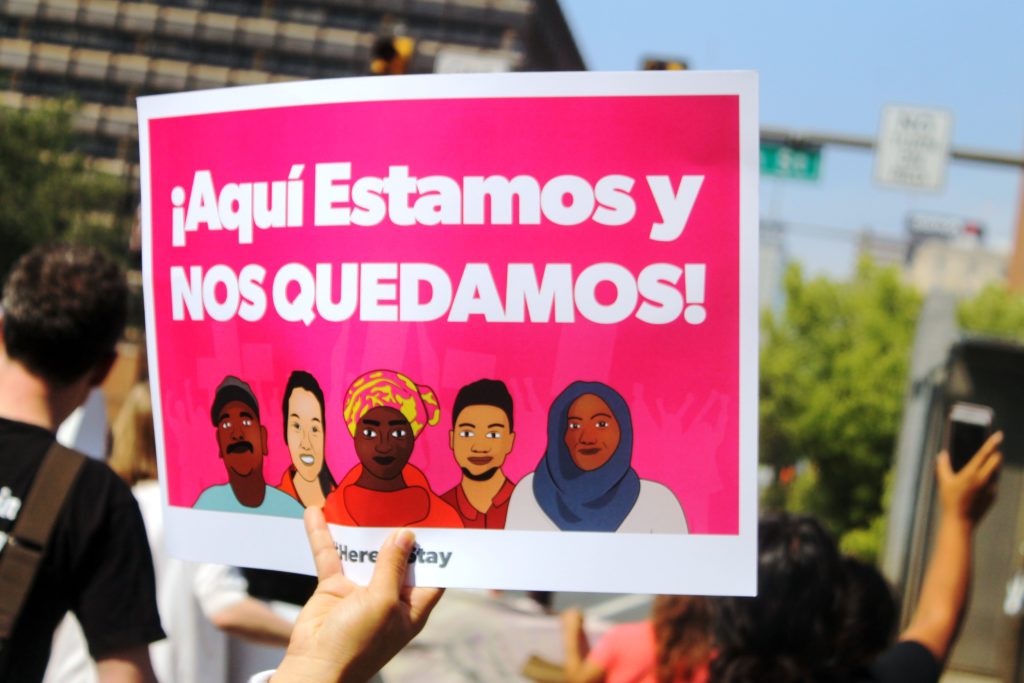
President Donald Trump’s decision to end DACA, the federal program that shields from deportation nearly a million young immigrants brought to the U.S. illegally by their parents, will affect just a few members of Casa del Pueblo, a Latino/a ministry of Lehman UMC in Hatboro. But it may hurt many of the ministry’s neighbors and constituents, according to its pastor, the Rev. Lillian “Luki” Cotto.
“At Casa del Pueblo we have a younger generation that was born here and just a couple of older, DACA kids,” said Cotto, referring to the mostly young adult, undocumented immigrants known as “Dreamers.” DACA refers to the Deferred Action for Childhood Arrivals, a temporary waiver from deportation offered in 2012 by former President Barack Obama—some say unlawfully—to eligible young people who had no say in being brought to the U.S.
“In our community there are more DACA families that we will try to help,” Cotto said. Her ministry extends beyond Hatboro to serve growing immigrant populations in Warminster and Warrington, many of them from Central America and Mexico, but other countries as well. Other Latino churches and ministries across the conference—in Philadelphia, Lancaster, Allentown, Lebanon and West Chester, for example—also have DACA recipients and applicants in their communities that may come seeking their help.

The Rev. Lillian Cotto (right) talks with other Eastern PA Conference Latino/a Commission clergy about immigration enforcement woes. From left: the Revs. Lydia Munoz, Esdras Seda, Mandredo Martinez, Evodia Villalva and Alicia Julia-Stanley. John Coleman photo
“Some of these kids were unable to get their applications in on time,” said Cotto. “Some just got their (two-year) renewals; and others were just about to apply, but a little too late. We are praying and figuring out how to help them if the worse comes, which will be deportation.
“If you know someone that is a DACA recipient,” she pleaded, “make sure they know that October 15 is the deadline to renew it for two more years. That does not mean they will get it or that they can’t be deported. But they should apply.”
To qualify for DACA, recipients had to be under 31 as of June 15, 2012. They also had to come to the U.S. before reaching their 16th birthday and be high school graduates or have obtained an equivalent certificate.
DACA recipients had to pay $495 and undergo extensive criminal background checks to ensure they had clean records. To remain DACA recipients, they had to endure the same process, including payments, every two years.
Because so much of her ministry of worship, Bible study, education and outreach serves unauthorized immigrants, Cotto is a member of the national Rapid Response Team, a group of United Methodists organized into “conference-wide task forces committed to action and advocacy for just and humane immigration reform.”
She co-chairs the Eastern PA Conference’s Rapid Response Team. Members will meet on an urgent conference call with Bishop Peggy Johnson on Monday evening, Sept. 11, to explore strategies to respond to the White House’s action.
“This is so cruel and unfair that Trump is taking away their (Dreamers’) lives, their possibilities,” Cotto lamented. She added that even many of the non-DACA members and residents she serves are more afraid now of being targeted by immigration enforcement agents.
“I know the Lord hears us and sees our crying. People are afraid and suffering in desperation. And many of us feel useless, that we can’t do much for them.”
The President decreed DACA to end in six months, giving Congress time to devise and pass a new law protecting current DACA recipients, who may number up to 800,000. Yet, Congress has a poor track record in legislating immigration reform, having failed three times in 11 years. Their failures prompted Obama to act.
“As some of the DACA recipients are saying, it is time for all of us to wake up and raise our voices,” said Cotto. “We need to keep the pressure on Congress this fall. They have to do something; they are the ones now that might be able to act justly on this important issue and save DACA.
“We need to unite our forces with others and see if they can hear us,” she continued. “Let’s continue to pray and fight back.”
Indeed, a number of United Methodists are urging Congress to act on behalf of these unauthorized immigrants who came to the U.S. as children. Some are donating funds, joining in protest marches around the nation, and engaging in letter-writing campaigns and other actions to lobby the President and Congress. They are calling on Congress to pass — and for President Trump to sign — legislation that allows responsible, hard-working, law-abiding “Dreamers” to remain in the U.S. and provides them with a pathway to citizenship.

Bishop LaTrelle Easterling speaks at a rally on DACA in front of the White House on Sept. 5. Photo courtesy of the Baltimore-Washington Conference.
Church leaders also have designated Dec. 3, the first Sunday of Advent, as a special day of prayer to support immigrants, while encouraging United Methodists to support immigration justice efforts with their giving and participation.
Bishop Peggy Johnson e-mailed a special call to prayer to Eastern PA Conference members on the eve of Trump’s announcement, urging them to “pray for our country and for the fate of nearly one million anxious young people who, as immigrants, are part of our American family.”
She quoted from the United Methodist Social Principles: We urge the church and society to recognize the gifts, contributions and struggles of those who are immigrants and to advocate for justice for all. We oppose immigration policies that separate family members from each other or that include detention of families with children; and we call on local churches to be in ministry with immigrant families.
“These are tense and difficult times for young people who have never known anything but a life in this country,” wrote the bishop. “Please pray, speak and work for people who need your voice…young people who had no say in coming here to live but who now contribute to our culture and society as vital threads in the rich, diverse fabric of our nation. Let their dreams be our dreams.”
For more national United Methodist coverage, read Churchgoers stand with immigrant Dreamers by Heather Hahn, UMNS.

